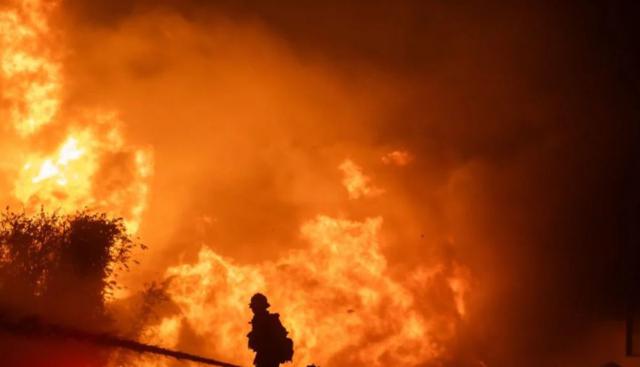(Reuters) – A shutdown of about a quarter of the U.S. government rolled into its 13th day on Thursday, with lawmakers and President Donald Trump divided over his demand for money for a border wall.
A sign informs visitors that Federal Hall is closed due to the government shutdown in New York City, New York, U.S., January 3, 2019. REUTERS/Shannon Stapleton
The shutdown, which began on Dec. 22, is the 19th since the mid-1970s. Most have been brief. Trump’s latest is the third on the Republican president’s watch and already ranks among the longest ever.
A border security briefing at the White House with senior lawmakers on Wednesday afternoon yielded no progress on reaching a deal to re-open the government.
There were several very short shutdowns under Republican President Ronald Reagan. Under Democratic President Bill Clinton, there were two shutdowns, including the longest on record: 21 days in 1996.
A 16-day shutdown happened under Democratic President Barack Obama in 2013 in a fight with Republicans over his healthcare law.
The current shutdown has not affected three-quarters of the government, including the Department of Defense and the Postal Service, which have secure funding. But 800,000 employees from the departments of Homeland Security and Transportation and other agencies have been furloughed or are working without pay.
Here is what is happening around the federal government.
SMITHSONIAN
The Smithsonian museums and the National Zoo in Washington are closed due to the shutdown, according to the Smithsonian website. Among these is the popular National Museum of African American History and Culture, which opened in 2016. “The museum is closed due to the federal government shutdown. Timed entry pass holders will be emailed instructions on how to reschedule their visit,” the museum posted on Instagram.
HOMELAND SECURITY
The department that oversees Customs and Border Protection, Immigration and Customs Enforcement, the Transportation Security Administration, the Coast Guard and the Secret Service is affected.
Of 245,000 agency employees, nearly 213,000 have been deemed “essential,” according to the department’s contingency plan, so they are working without pay until a funding bill is passed. TSA officers working without pay screened more than 2 million travelers and their baggage during the holidays.
HOUSING AND URBAN DEVELOPMENT (HUD)
Most of this department’s 7,500 employees are “non-essential” and only about 340 are working. Nearly 1,000 others may be called in for specific tasks, without pay.
Public housing authorities and Native American tribal housing entities are not part of the federal government and so are not required to shut down. But the federal government provides some of their funding so some have reduced services or changed operating hours.
HUD, which oversees some housing loan and low-income housing payment programs, warned in its contingency plan that “a protracted shutdown could see a decline in home sales, reversing the trend toward a strengthening market.”
COMMERCE DEPARTMENT
The Department of Commerce’s Bureau of Economic Analysis and Census Bureau are not publishing economic data, including key figures on gross domestic product, inflation, personal income, spending, trade and new home sales, during the shutdown.
OFFICE OF PERSONNEL MANAGEMENT
The agency that oversees the federal workforce has given advice to workers on dealing with landlords, mortgage lenders and other creditors, including sample letters explaining severe lost income due to the lack of federal funding.
FEDERAL COMMUNICATIONS COMMISSION
The FCC, which regulates radio and television broadcast and cable systems, said it will suspend most operations at midday on Thursday, if the shutdown has not ended by then. Work for “the protection of life and property” will continue. So will operations at the agency’s Office of Inspector General, the FCC’s internal watchdog.
COAST GUARD
Members of the Coast Guard were due to get their final 2018 paychecks on Monday, their last until the government reopens.
FEMA
The Federal Emergency Management Agency (FEMA) was to resume issuing new flood insurance policies during the shutdown, reversing an earlier decision.
INTERIOR
The National Park Service, under the umbrella of the Interior Department, is operating with a skeleton staff. Under its contingency plan, some parks may be accessible, with others closed completely. The National Park Service is providing no visitor services such as restrooms, facility and road maintenance and trash collection. Campgrounds have begun closing due to sanitation issues. The parks are losing approximately $400,000 per day in usage fees because no rangers are staffing the entrances, according to Senate appropriators.
TRANSPORTATION
Of its 55,000 employees, 20,400 have been put on leave. This excludes most of the Federal Aviation Administration, where 24,200 are working and the Federal Highway Administration, where all 2,700 employees are funded through other sources.
Air traffic control, hazardous material safety inspections and accident investigations continue, but some rule-making, inspections and audits have been paused.
EXECUTIVE OFFICE OF THE PRESIDENT
An estimated 1,100 of the office’s 1,800 employees are on leave. This includes most of the Office of Management and Budget, which helps implement budget and policy goals.
NASA
Most employees at the National Aeronautics and Space Administration (NASA) are on furlough. The small percentage of who remain – most deemed essential to “prevent imminent threats to human life or the protection of property” – are working without pay. Work on any satellite mission that has not yet launched will be suspended until the agency receives funding, according to its contingency plan.
HOME PURCHASES
Individuals trying to finance home purchases through the Federal Housing Administration (FHA) are experiencing significant delays in loans being processed and approved, as are those applying to refinance an FHA-insured mortgage, according to Senate appropriators.
MARRIAGES
Some city government services in the District of Columbia also are affected by the shutdown. The courthouse offices that issue marriage licenses, for example, have closed. D.C. Mayor Muriel Bowser has said she will sign emergency legislation to re-open the offices during the shutdown.
Reporting by Makini Brice, David Morgan and Amanda Becker; Editing by Kevin Drawbaugh and Bill Trott






Leave a Reply